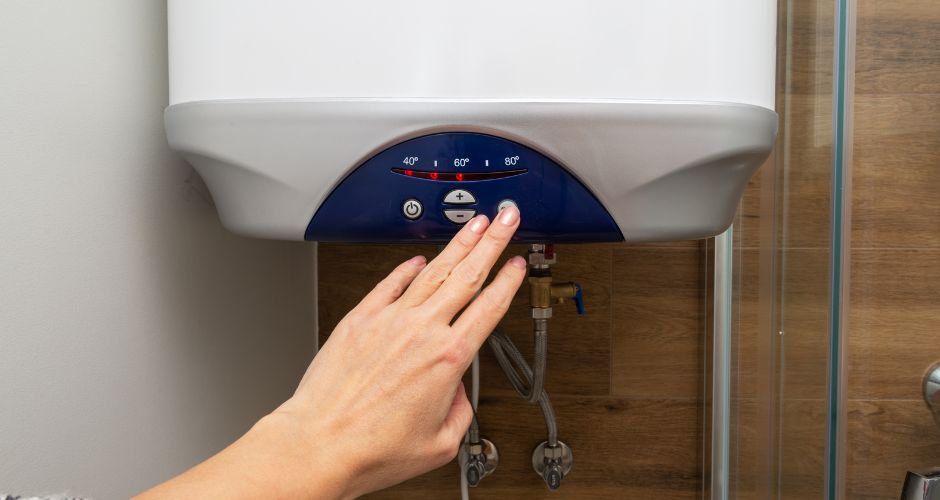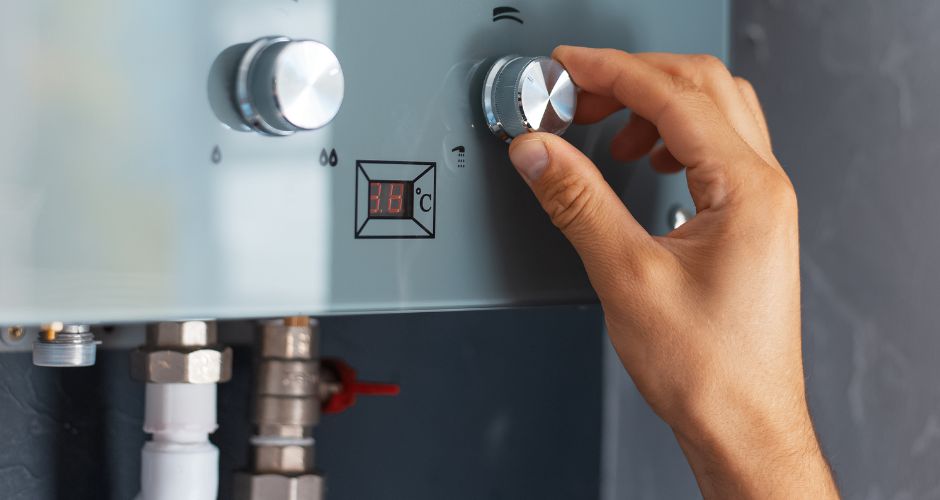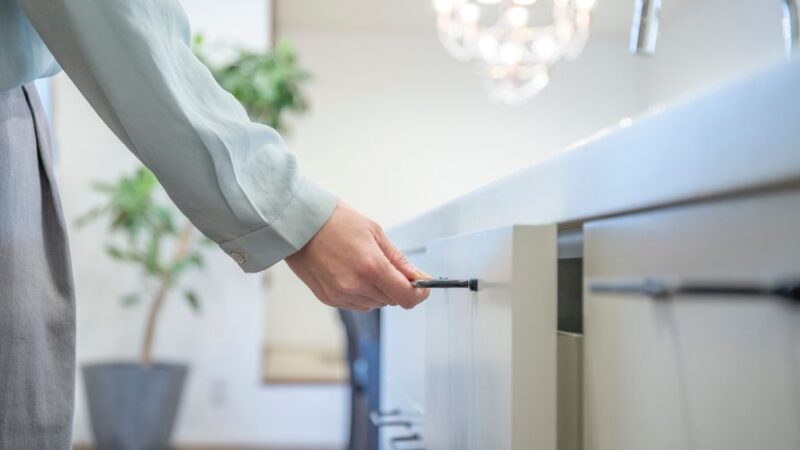When Should You Replace Your Water Heater?

Your water heater works tirelessly behind the scenes, ensuring hot showers, clean dishes, and fresh laundry. But even the hardest-working appliances have their limits. So, how long does a water heater last?
Wondering if your water heater is on its last leg? From inconsistent water temperature to strange noises, the signs can be subtle but telling.
In this blog, we’ll dive into the lifespan of water heaters, key warning signs to watch for, and tips to know when it’s time to upgrade. Don’t let a surprise cold shower ruin your day—stay ahead of plumbing disasters with our guide!
Signs Water Heater Needs Replacing
Recognizing the signs that your water heater is failing can help you avoid sudden breakdowns and costly emergency repairs.
1. Age of the Water Heater
- Typical Lifespan:
Traditional water heaters with storage tanks typically last 8 to 12 years, while tankless models can last 20 years or more. However, this depends on maintenance, water quality, and usage. - What to Check:
Locate the manufacturer’s label on your water heater to determine its age. If the unit is approaching or exceeding its lifespan, it’s wise to start considering a replacement to avoid unexpected failures.
2. Inconsistent or No Hot Water
- What Happens:
If your water heater struggles to produce hot water consistently or runs out of hot water quickly, it may indicate failing heating elements, sediment buildup, or an undersized unit. - Why It Matters:
Inconsistent heating could be an early sign of a failing unit. While repairs may temporarily solve the problem, frequent issues often signal that replacement is a more cost-effective solution.
3. Rusty or Discolored Water
- What Happens:
Rust-colored water coming from your taps, especially the hot water side, may indicate corrosion inside the water heater tank. - What to Do:
Flush the tank to see if the issue resolves. If rust continues to appear, it’s likely the tank itself is corroding, which means a replacement is necessary. Once corrosion begins inside the tank, it cannot be repaired.
4. Strange Noises from the Tank
- Common Sounds:
Rumbling, popping, or banging noises coming from your water heater are caused by sediment buildup at the bottom of the tank. - Impact on Performance:
As sediment hardens over time, it reduces the tank’s efficiency, making it work harder to heat water. This added strain can cause cracks or leaks. If noises persist even after flushing the tank, it may be time to replace the unit.
5. Leaking Water
- Visible Leaks:
Water pooling around the base of the heater or dripping from the tank indicates a significant issue. - What It Means:
Leaks often result from internal cracks or wear and tear in the tank. Once a tank starts leaking, repair is typically not an option, and replacement becomes necessary to prevent further water damage to your home.
6. Rising Energy Bills
- Why It Happens:
An old or malfunctioning water heater requires more energy to heat water. Sediment buildup and inefficient components increase the energy required for the unit to function. - What to Look For:
If your energy bills have noticeably increased without other changes in your usage, your water heater might be the reason. A newer, energy-efficient model can save you money in the long run.
7. Frequent Repairs
- When Repairs Add Up:
If you find yourself repeatedly calling a plumber to fix your water heater, those repair costs can quickly surpass the cost of a new unit. - Replacement Timing:
Consider replacing the water heater if repairs are becoming a regular occurrence. Investing in a new unit will save money and eliminate the hassle of ongoing maintenance.
8. Insufficient Hot Water Supply
- Growing Household Needs:
If your family or household size has increased, your existing water heater might not meet your hot water demands. - Upgrade Benefits:
Upgrading to a larger capacity or tankless water heater ensures that you have a consistent hot water supply without interruptions, especially during peak usage times.
9. Visible Damage to the Tank
- Signs of Wear:
Inspect your water heater for visible damage, such as cracks, dents, or corrosion on the exterior. - Why It’s Important:
Visible damage may indicate structural issues that can lead to leaks or tank failure. A damaged water heater should be replaced before it causes water damage to your property.

Importance of Timely Replacement
Timely replacement of your old water heater is essential for maintaining comfort, efficiency, and safety in your home. An outdated or failing water heater can lead to increased energy costs, reduced hot water supply, water quality issues, and even water damage from leaks. By proactively replacing your old water heater when signs of trouble arise, you can avoid costly repairs, minimize disruptions to your daily routine, and ensure reliable hot water supply for years to come.
Things to Consider When Replacing an Old Water Heater
- Type of Water Heater: Consider the type of water heater that best suits your needs and budget. Options include traditional tank water heaters, tankless water heaters, heat pump water heaters, and solar water heaters. Each type has its advantages and disadvantages in terms of cost, energy efficiency, and hot water supply.
- Size and Capacity: Determine the appropriate size and capacity of the water heater based on the hot water demands of your household. Consider factors such as the number of occupants, usage patterns, and peak hot water usage times to ensure that the new water heater can meet your needs effectively.
- Energy Efficiency: Look for water heaters with high energy efficiency ratings to minimize energy consumption and reduce utility costs. Energy-efficient models may qualify for rebates or incentives from utility companies or government programs, making them a cost-effective choice in the long run.
- Installation Requirements: Consider the installation requirements and compatibility of the new water heater with your existing plumbing system, electrical or gas connections, and space constraints. Ensure that the chosen water heater can be installed safely and efficiently by a qualified professional.
- Cost and Budget: Evaluate the upfront cost, installation expenses, and long-term operating costs of different water heater options to determine the most cost-effective solution for your budget. While higher-efficiency models may have a higher initial cost, they can result in significant savings over time through reduced energy consumption.
- Warranty and Reliability: Choose a water heater from a reputable manufacturer with a proven track record of reliability and customer satisfaction. Check the warranty coverage and terms, including parts and labor, to ensure peace of mind and protection against unexpected repairs or malfunctions.
- Maintenance Requirements: Consider the maintenance requirements of the new water heater, including regular flushing of the tank, replacing sacrificial anode rods, and scheduling professional inspections and tune-ups. Proper maintenance can prolong the lifespan of the water heater and optimize its performance.
- Environmental Impact: Take into account the environmental impact of the chosen water heater, including energy efficiency, greenhouse gas emissions, and resource conservation. Opting for a high-efficiency or renewable energy-powered water heater can help reduce your carbon footprint and contribute to sustainability efforts.
- Safety Features: Look for water heaters with built-in safety features such as temperature and pressure relief valves, automatic shut-off mechanisms, and corrosion-resistant components. These features can help prevent accidents, minimize water damage, and ensure the safe operation of the water heater.
- Professional Installation: Lastly, ensure that the new water heater is installed by a licensed and experienced plumber or HVAC technician to ensure proper installation, code compliance, and safety. Professional installation can also help maximize the performance and longevity of the water heater, avoiding potential issues or complications down the line.
Your water heater is a vital appliance that requires regular maintenance and occasional replacement to ensure optimal performance and efficiency. By paying attention to the signs of trouble and acting promptly when replacement is necessary, you can avoid unexpected breakdowns, reduce energy costs, and enjoy uninterrupted hot water supply in your home.
If you suspect that it’s time to replace your old water heater, don’t hesitate to contact a qualified plumber to assess your options and recommend the best solution for your needs.
Recommended – How to Deal with Plumbing Emergencies






